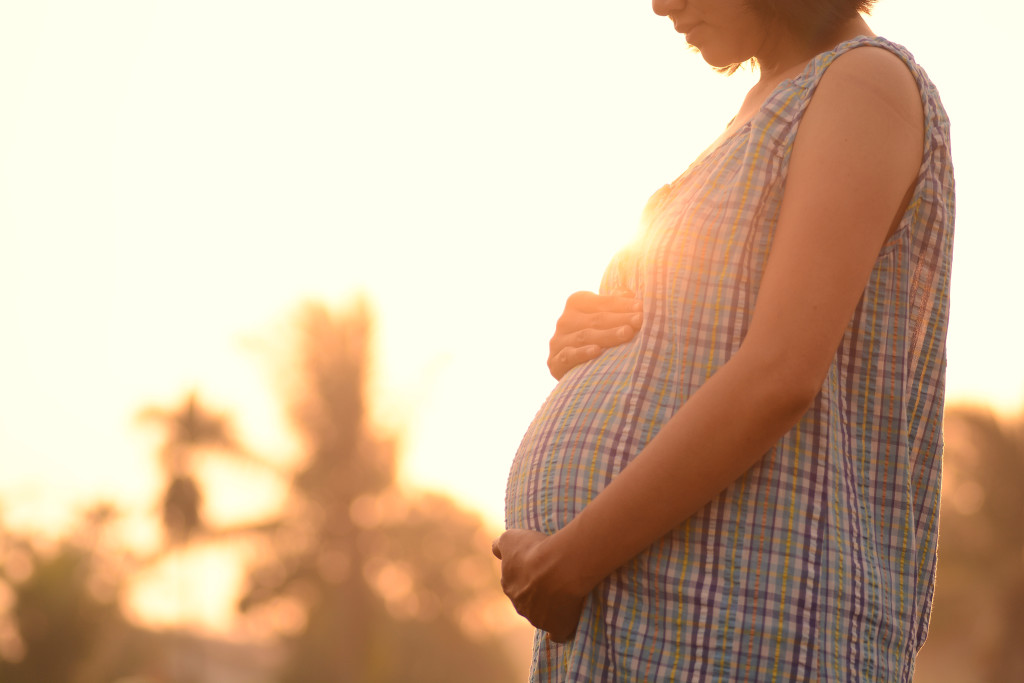
Motherhood, pregnancy and drinking alcohol is a complex matter. It is highly recommended for pregnant women not to consume alcohol, and as a consequence, most women stop or significantly reduce their alcohol consumption.
New data depicts a rise in the rate of women drinking alcohol during pregnancy in the United States. According to the 2017 stats from the Centers for Disease Control and Prevention, one in nine pregnant women drink, and four percent engage in binge-drinking.
How harmful is alcohol during pregnancy?
There is, however, no safe level of drinking alcohol during pregnancy. It has been challenging to determine a ‘cut-off- point,’ as women who accidentally had a drink before knowing they had been pregnant demonstrated a very low risk of complications.
Research has shown associations of all kinds of alcohol to fetal alcohol syndrome, leading to developmental delays, heart conditions, facial deformities, and bone or joint problems. A study published in the British Medical Journal in 2017 found that two drinks a week increased the risk of fetal alcohol syndrome by 10 percent.
On the other hand, Harvard researchers in 2013 found that rates of complications were relatively unchanged across all levels of alcohol consumption.
Motherhood and alcohol consumption
A recent international study, led by the Murdoch Children’s Research Institute, found that most of these women returned to their pre-pregnancy drinking levels by the time their child turned five. Drawing data from three longitudinal population studies conducted in Australia and New Zealand, the study tracked the drinking habits of more than 4000 people.
Lead author, psychologist Dr. Rohan Borschmann, stated that the study found 15 percent of the mothers with a child aged five or older to have reported binge drinking in the past week. The reasons for the brief reprieve remained unexplored, and the researchers stressed upon the importance of further digging into these reasons in future studies.
On the other hand, the study reported a limited change in the drinking tendencies of men upon entering fatherhood.
Why is this important?
“One of the important messages of our findings is that both men and women need to find different ways to put their brakes on their drinking during this time of life,” the author wrote.
The study aimed to explore the extent that becoming a parent inhibited heavy and problematic drinking in young men and women.
 “Reducing parental drinking is likely to produce a double dividend that is both good for the parent and good for the child,” concluded Dr. Borschmann said.
“Reducing parental drinking is likely to produce a double dividend that is both good for the parent and good for the child,” concluded Dr. Borschmann said.
He believes that this data holds the potential to be utilized by policy advisors and health professionals to inform the public that if they can manage to limit their drinking within the initial year, it may be possible to carry it out long term.
A different approach
Angela Garbes, the author of Like a Mother: A Feminist Journey Through the Science and Culture of Pregnancy, questions the ‘extreme’ CDC guidelines. She explains the very real pressure placed upon women as soon as they become pregnant where they are simply expected to forget the person they have been for decades completely.
Garbes suggests a more feminist approach where she believes that instead of just blatantly telling expecting moms not to do something altogether, they can be asked what level of risk are they actually comfortable with.
Dr. Jen Gunter, an OB/GYN and New York Times columnist, agrees with the premise mentioned above but also states “the inconvenient truth” from her past work that no amount of drinking alcohol during pregnancy is okay.
She summarized the scenario saying, “The best analogy for the risk is driving with your newborn unbuckled in the back seat. Maybe you’ll get into a car accident and maybe you won’t … if you do, maybe it will be a fender bender, or maybe it will be catastrophic.”
If you are an expecting mother or a new mom it may be best to reach out to your doctor regarding any changes you want to make in your alcohol consumption in order to achieve n informed decision that is mutually beneficial for you and your child.
References:
1. https://www.sciencedaily.com/releases/2019/02/190227111224.htm
2. https://www.dailymail.co.uk/health/article-6960559/Rise-pregnant-women-drinking-alcohol-1-9-occasionally-drink-4-binge-drink.html
About the Author:
 Sana Ahmed is a journalist and social media savvy content writer with extensive research, print, and on-air interview skills. She has previously worked as a staff writer for a renowned rehabilitation institute, a content writer for a marketing agency, an editor for a business magazine and been an on-air news broadcaster.
Sana Ahmed is a journalist and social media savvy content writer with extensive research, print, and on-air interview skills. She has previously worked as a staff writer for a renowned rehabilitation institute, a content writer for a marketing agency, an editor for a business magazine and been an on-air news broadcaster.
Sana graduated with a Bachelors in Economics and Management from the London School of Economics and began a career of research and writing right after. Her recent work has largely been focused upon mental health and addiction recovery.
The opinions and views of our guest contributors are shared to provide a broad perspective of addictions. These are not necessarily the views of Addiction Hope, but an effort to offer a discussion of various issues by different concerned individuals.
We at Addiction Hope understand that addictions result from multiple physical, emotional, environmental and genetic factors. If you or a loved one are suffering from an addiction, please know that there is hope for you, and seek immediate professional help.
Reviewed and Approved by Jacquelyn Ekern, MS, LPC on June 25, 2019
Published June 25, 2019, on AddictionHope.com
